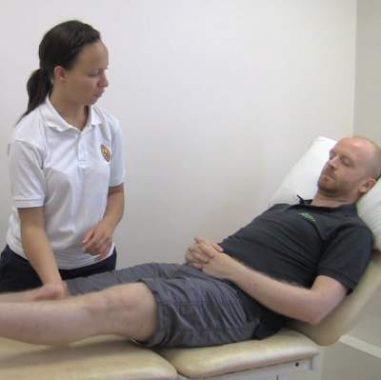Placing physiotherapists in GP practices to carry out musculoskeletal appointments cuts GP workload and dramatically reduces referrals to secondary care, according to early trial results.
Since September 2016, 14 advanced practitioner physiotherapists across 65 practices in North Wales have seen more than 15,000 patients for musculoskeletal problems.
More than a third of those patients came straight to the physio without seeing the GP – a figure which is rising as the scheme becomes more well known.
Speaking at a Policy Forum for Wales conference on primary care, lead physiotherapist Robert Caine – from Betsi Cadwalladr University Health Board – said 92% of patients were managed within one appointment.
Most patients seen by the scheme have been dealt with within primary care, with physios able to refer patients and carry out steroid injections.
The figures show that since 2015 when the scheme started as a pilot project with one physiotherapist serving four GP practices almost 3000 referrals to secondary care have been avoided at a cost of nearly £380,000.
Of the 15,000 patients only 38 were referred back to the GP and in 70 cases the GP was asked for a second opinion during the appointment.
It is estimated that musculoskeletal problems account for 30% of GP workload, said Mr Caine.
‘We haven’t got any specific numbers on reduction in GP workload but from anecdotal reports our estimate is about 15%.’
It is hoped that eventually, the physios will see about 70% of all musculoskeletal appointments.
‘The patients have given fantastic feedback, very positive,’ he said.
He added that patients get a 15-20 minute appointment with a specialist.
‘The majority of GPs will say they much prefer the physio to see the MSK patients,’ he said.
Some issues have been finding enough experienced physiotherapists to take on the role, backfilling those who have moved out of working in the hospital and GPs having to take on a mentor role when physios are first in post, he said.
Dr David Bailey, deputy chair GPC Wales, said they welcomed any measures which help to ease the mounting pressures in general practice.
‘Currently, MSK health issues account for up to 30% of a GP case load, therefore these roles undoubtedly relieve pressure on busy GPs, freeing up their time to see other patients.’
He added such schemes were something they want to see more of in Wales.
‘Clusters are responsible for determining the health needs of a population, so it’s their decision to determine clinical priorities, and whether available monies is better spent on extra nurses, pharmacists, physiotherapists or other allied healthcare professionals.’
Note: This article was amended at 14:30 on 12 July to reflect that there were in fact 14 physiotherapists working across 65 practices during the trial.
Pulse October survey
Take our July 2025 survey to potentially win £1.000 worth of tokens












